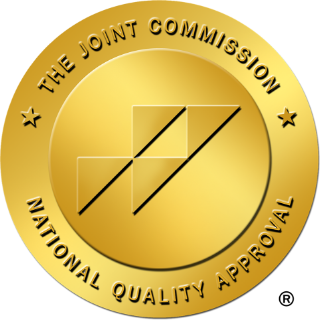Navigating mental health challenges can feel overwhelming. When you or someone you care about needs assistance, knowing where to go for help becomes crucial for a successful recovery. The world of mental health treatment offers various options, with mental health hospitals and rehabilitation centers being two primary choices for professional care.
Every individual’s experience with mental health is different. Some people may go through intense symptoms that require immediate medical attention, while others may need organized support to develop long-term coping strategies. The key is to align these personal needs with the appropriate treatment setting.
Understanding the differences between a mental health hospital and a rehab center can greatly influence recovery outcomes. These facilities serve different purposes:
- Mental health hospitals provide acute care for crisis situations
- Rehabilitation centers focus on sustained recovery and skill-building
- Both settings offer professional support with distinct approaches
This guide breaks down the essential differences between mental health hospitals and rehabilitation centers. We’ll explore their unique features, treatment approaches, and help you understand which option might best serve your needs. Whether you’re seeking help for yourself or supporting someone else, this information will empower you to make confident decisions about mental health care.
Understanding Mental Health Hospitals
Mental health hospitals, also known as psychiatric hospitals, are specialized medical facilities that provide intensive care for individuals facing severe mental health crises. These hospitals offer a safe and structured environment where patients can receive immediate medical attention and support.
Common Conditions Treated:
- Severe clinical depression with risk of self-harm
- Active suicidal thoughts or attempts
- Acute manic episodes
- Psychotic disorders such as schizophrenia, which may require specialized treatment
- Severe anxiety disorders
- Mental health emergencies requiring immediate intervention
The main goal of mental health hospitals is to stabilize patients quickly through intensive medical care. In these facilities, patients receive close monitoring of their medication, crisis intervention, and prompt psychiatric treatment in a secure setting designed to ensure their safety.
Key Hospital Features:
- Secured units with 24/7 monitoring
- Restricted access to potentially harmful items
- Emergency medical equipment and facilities
- Structured daily schedules
- Private and semi-private rooms
- Group therapy spaces
- Medication distribution centers
A team of mental health professionals works together to provide care in these hospitals. This team may include:
- Board-certified psychiatrists
- Licensed clinical psychologists
- Psychiatric nurses
- Social workers
- Mental health technicians
- Occupational therapists
These facilities have strict protocols in place to ensure patient safety. This includes regular check-ins, supervised activities, and careful monitoring of medication responses. The average length of stay in a mental health hospital is usually between several days to a few weeks, depending on how severe the symptoms are and how well the patient responds to treatment. Such responses are often carefully evaluated through established clinical protocols to ensure the best outcomes for patients.
Understanding Mental Health Rehab Centers
Mental health rehab centers provide a structured yet flexible environment designed for individuals seeking sustained recovery and personal growth. Unlike the acute care focus of a mental health hospital, rehab centers create a supportive community atmosphere where healing unfolds at a manageable pace.
These facilities welcome individuals who:
- Have stabilized from an acute mental health crisis
- Need support managing chronic mental health conditions
- Seek to develop stronger coping mechanisms
- Want to address underlying trauma or emotional challenges
A comprehensive treatment approach includes:
Evidence-Based Therapies
- Individual psychotherapy sessions
- Group counseling
- Family therapy programs
- Cognitive Behavioral Therapy (CBT)
Holistic Healing Methods
- Mindfulness meditation
- Yoga and movement therapy
- Art and music therapy
- Nutritional counseling
Life Skills Development
- Stress management techniques
- Communication skills training
- Relapse prevention strategies
- Daily living skills
The therapeutic environment encourages residents to practice new skills in a safe setting while receiving professional guidance. Staff members work collaboratively with each person to create individualized treatment plans that evolve as progress occurs.
Through structured daily schedules and therapeutic activities, residents learn to integrate healthy habits into their routines. This balanced approach helps build a strong foundation for lasting mental wellness and sustainable recovery.
In addition to these therapies, it’s important to note that mental health rehabilitation often involves addressing various aspects of an individual’s life, including their social, emotional, and occupational functioning. This holistic approach is crucial for achieving long-term recovery.
Key Differences Between Mental Health Hospitals and Rehab Centers
Mental health hospitals and rehabilitation centers serve distinct purposes in the recovery journey, with several key differences:
1. Length of Treatment
- Mental health hospitals focus on short-term care, typically 3-14 days
- Rehab centers offer extended programs lasting 30-90 days or longer
- Hospital stays aim for rapid stabilization
- Rehab programs allow time for deeper healing and skill development
2. Treatment Approach
- Hospitals prioritize crisis intervention and immediate safety, which can be crucial in situations involving domestic violence
- Medical staff in hospitals manage acute symptoms through intensive care
- Rehab centers build foundation for long-term wellness
- Treatment in rehab incorporates daily routines and life skills practice
3. Environmental Setting
- Hospital units maintain strict security protocols
- Limited personal belongings allowed in hospital settings
- Rehab centers create home-like atmospheres
- Patients in rehab enjoy more freedom and community interaction
4. Daily Structure
- Hospital schedules revolve around medical monitoring
- Rehab programs include varied activities:
- Group therapy sessions
- Recreational activities
- Family visits
- Community outings
- Hospitals focus on stabilization while rehab builds independence
These fundamental differences help guide individuals and families in choosing the most appropriate care setting based on current needs and recovery goals.
When to Choose a Mental Health Hospital or a Rehab Center?
Making the right choice between a mental health hospital and a rehab center depends on the severity and immediacy of your mental health needs.
Mental Health Hospital – Immediate Crisis Situations:
- Active suicidal thoughts or attempts
- Severe self-harming behaviors
- Psychotic episodes with loss of touch with reality
- Inability to care for basic needs
- Risk of harming others
- Severe manic episodes
- Acute psychiatric emergencies
Rehab Center – Recovery-Focused Care:
- Stable enough for daily activities but struggling with:
- Persistent depression or anxiety
- Post-traumatic stress disorder (PTSD)
- Eating disorders in maintenance phase
- Substance use disorders
- Need for medication adjustment
- Desire for intensive therapy
A mental health hospital becomes essential when safety is the primary concern. These facilities provide immediate intervention and stabilization for life-threatening situations. The presence of 24/7 medical staff ensures rapid response to emergencies.
Rehab centers suit individuals who have moved past the acute crisis phase. These facilities help build long-term coping strategies and life skills. The structured yet flexible environment allows patients to practice new behaviors while receiving professional support.
Your healthcare provider can assess your specific situation and recommend the most appropriate setting for your needs.
Other Factors to Consider When Selecting a Facility
Choosing the right mental health hospital or treatment center requires careful evaluation of several critical factors beyond the type of care provided.
Licensing and Accreditation
Make sure to check the following:
- State-specific licensing requirements
- Recognition from organizations like Joint Commission (JCAHO) or CARF
- Regular facility inspections and compliance records
- Insurance acceptance and coverage verification
Staff Qualifications
Look for these qualifications in the staff:
- Board-certified psychiatrists
- Licensed clinical psychologists
- Experienced mental health nurses
- Certified addiction specialists
- Therapists trained in specialized treatments like CBT, DBT, or EMDR
Treatment Program Quality Indicators
Assess the quality of the treatment program using these indicators:
- Evidence-based treatment protocols
- Staff-to-patient ratios
- Emergency response procedures
- Family involvement opportunities
- Aftercare planning and support
Facility Environment
Visit the facility and evaluate its environment based on these factors:
- Clean, well-maintained spaces
- Private and semi-private room options
- Therapeutic amenities
- Safety measures and protocols
- Accessibility features
A thorough evaluation of these elements helps ensure you receive care from qualified professionals in a safe, supportive environment. Request facility tours, ask about staff credentials, and review patient testimonials to make an informed decision about your treatment journey.
How Pacific Breeze Recovery Helps with Depression and Anxiety
If you or a loved one is facing ongoing struggles with depression or anxiety, Pacific Breeze Recovery offers a safe, supportive, and comprehensive alternative to traditional mental health hospitals. While mental health hospitals provide essential crisis stabilization, our rehab center specializes in guiding individuals toward lasting recovery through evidence-based therapies, holistic healing, and personalized care.
At Pacific Breeze Recovery, we recognize that mental health and substance use challenges often go hand-in-hand. That’s why our dual-diagnosis program is designed to address both conditions concurrently—offering a more complete path to recovery.
Our Approach to Anxiety
We treat a wide range of anxiety disorders, including Generalized Anxiety Disorder (GAD), Panic Disorder, Social Anxiety, and Obsessive-Compulsive Disorder (OCD). Anxiety can feel overwhelming, but with the right tools, it is manageable. Our team works closely with each client to identify anxiety triggers, manage symptoms, and build healthy coping mechanisms. Treatment options include:
- Individual and group therapy sessions
- Cognitive Behavioral Therapy (CBT)
- Holistic therapies like yoga, meditation, and art
- Life skills training and relapse prevention
- Family support and aftercare planning
Our Approach to Depression
Depression can be isolating and debilitating, but it is also highly treatable. We help clients break free from cycles of hopelessness and substance use by combining compassionate clinical care with holistic support. Our depression treatment plans include:
- One-on-one therapy sessions with licensed clinicians
- Group therapy for connection and shared healing
- Medication management when appropriate
- Trauma-informed care and EMDR for deep emotional work
- Peaceful, home-like surroundings that promote mental wellness
At Pacific Breeze Recovery, you’re more than your diagnosis—you’re a person with a story, and we’re here to help you rewrite it. Whether you’re recovering from a mental health crisis or seeking a nurturing space to heal from persistent depression or anxiety, our center offers the resources and care you need.
Ready to take the next step? Contact Pacific Breeze Recovery today to learn how we can support your journey toward mental wellness and lasting recovery.
Choosing the Right Mental Health Care Facility
Choosing between a mental health hospital and a rehabilitation center is an important decision in your recovery journey. Each facility serves different needs, and the right choice depends on your unique situation.
Professional guidance is invaluable in making this decision. A qualified mental health professional can:
- Assess your current mental state
- Review your treatment history
- Consider your support system
- Evaluate your specific recovery goals
- Recommend the most appropriate care setting
At Pacific Breeze Recovery, we understand the complexities of mental health and addiction treatment. Our experienced team provides personalized assessments to help determine your ideal treatment path. We offer:
- Comprehensive evaluations to understand your needs
- Evidence-based treatment programs
- Holistic healing approaches
- Individualized recovery plans
- Ongoing support for sustainable wellness
Whether you’re struggling with depression or facing challenges due to a dual diagnosis, our compassionate team at Pacific Breeze Recovery stands ready to guide you through your options. We’re here to help you build a strong foundation for lasting recovery and mental wellness.
Ready to take the next step? Contact us today to learn more about our personalized programs and start your journey toward healing. Your path to recovery begins with a single call – let us help you take that first step.





